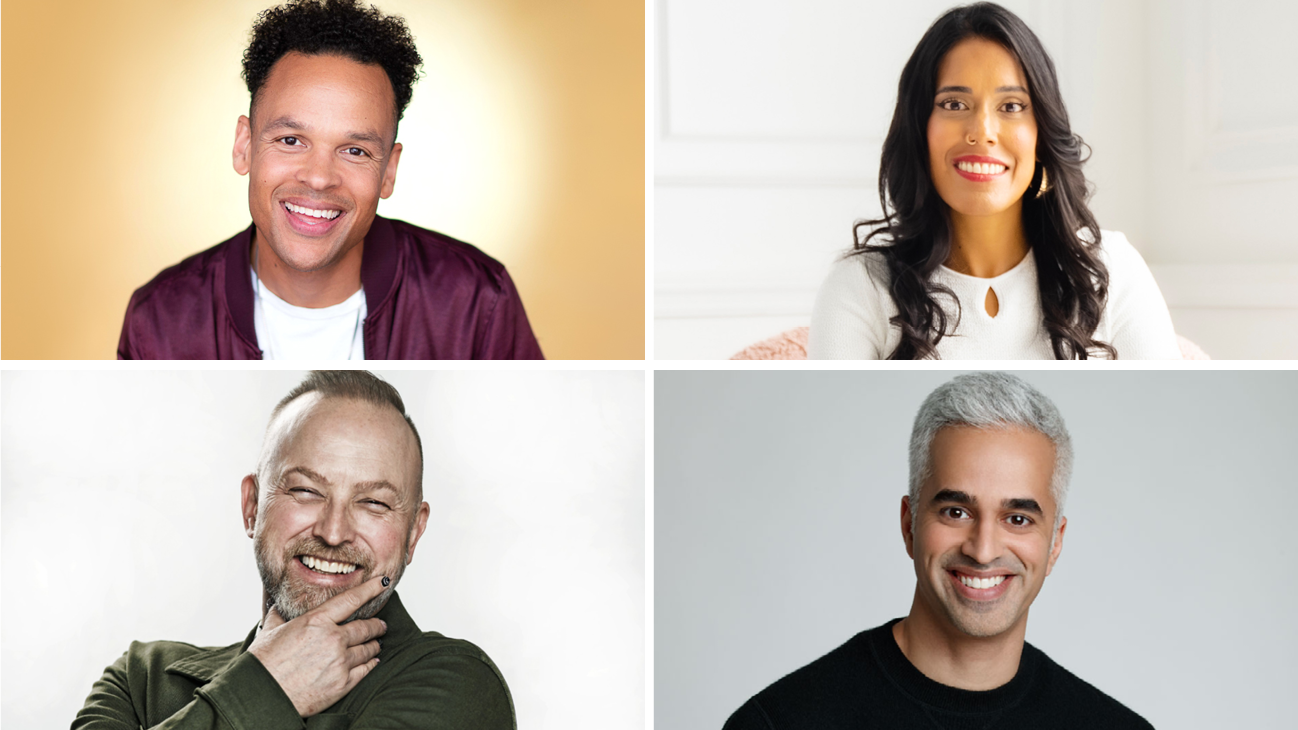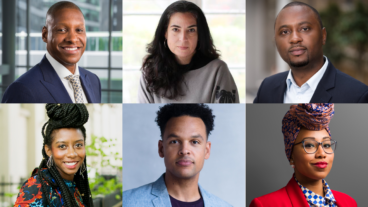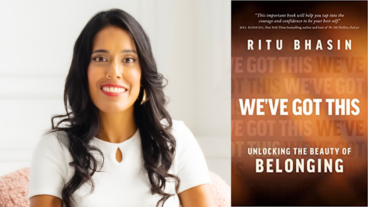Creating cultures of belonging is vital to our well-being, and the more we learn about the importance of cultivating belonging, the more we can easily see how it ties into the event-going experience. Why? Because events are tools for building shared experiences and opportunities for connection. Belonging only serves to enhance this.
Belonging is the feeling of being accepted and honoured for who you are by your own self and by the people around you. It’s the feeling of security and support when there is a sense of acceptance, inclusion, and identity for all. As event planners, we have the opportunity to intentionally design our events to foster that sense of belonging for our attendees and, as a result, create even more memorable and meaningful experiences.
We asked some experts in the fields of DEI, mental health, belonging, and connection to share ways in which event planners can cultivate a culture of belonging at their in-person events. Here’s what they recommend:
Be Intentional With "What is Said" and "How it's Said"

Ritu Bhasin
Empowerment Speaker | Inclusion Expert | Author
To foster belonging, we need to be in a place where we are digging deep, being vulnerable, and creating opportunities for social connection or that bonded feeling. So, right from the kick-off of an event, I recommend that you intentionally create opportunities for one-on-one social interactions, such as embedding multiple icebreaker experiences within your event, whether it’s over the course of one day or multiple days.
These should be icebreakers where people are literally getting up, moving about, turning to the person beside them, etc. Make sure you carve out those moments in your schedule. It can be as simple as asking one question that sparks people to share something about themselves with their neighbours.
To propel that human and social connection even further, ask your speakers, presenters, and emcees to incorporate personal stories into their sessions. This helps sets the tone of your event and cultivate that energetic vibe of belonging. If your first icebreaker of the day was asking everyone to share their favourite childhood memory, then ask your keynote opener to do the same. When the people on stage are engaging in these activities that helps normalize and embed vulnerability and connection into the event.
Ensuring that you have speakers from diverse communities, captioning your slides, reserving seating up front for people who are visually or hearing impaired are all critical practices, but what is said and how it’s said is just as important to cultivate feelings of inclusivity and belonging at an event.
Ritu Bhasin is an internationally recognized expert in leadership, workplace culture, inclusion, and belonging. The bestselling author of We’ve Got This: Unlocking the Beauty of Belonging, she shows audiences how to unlock the power of belonging in their organizations for transformative results.
360 Accessibility

Michael Bach
Inclusion, Diversity, Equity, and Accessibility Thought Leader | Bestselling Author
The first step is to make sure your event is entirely accessible. That goes beyond apparent things like ensuring you’re holding it in a facility with a wheelchair ramp.
Are you providing an ASL/QSL interpreter? Are you providing slides in advance? Beyond people with diverse abilities, is the location accessible by transit? Are you providing a virtual option for attendees? What about gender-inclusive restrooms? Brainstorm all the ways a person might access your event and remove any barriers that could get in a person’s way — physical or attitudinal. And don’t wait for someone to ask for accommodation. Assume someone needs it.
Beyond where your event is, it’s essential to think about when your event is. Just as you wouldn’t host a conference during March Break or Christmas, don’t it during Ramadan or Passover either. Look at a multicultural calendar to identify dates that are as open as possible. Keeping in mind that you’ll never be able to avoid all celebrations, if you are hosting it during a particular period — like Pride month, for example — ensure you’re celebrating the cultural holiday as part of your event.
Michael Bach is a nationally and internationally recognized thought leader and subject matter expert in the fields of inclusion, diversity, equity, and accessibility (IDEA). He share his vast knowledge of leading practices in creating equitable workplaces in any industry.
Create Opportunities for Authentic Connection

Riaz Meghji
Human Connection Expert | Author of Every Conversation Counts
The price of connection isn’t just effective planning, it’s vulnerability.
For in-person events in our hybrid world of work, I believe keynotes and learning sessions not only need to provide tangible takeaways, but also, personalized opportunities for building connection.
What’s a practical way for planners to accomplish this and foster more belonging?
Plan and create sessions that deliver value with addition by subtraction.
For example, speakers could be encouraged to deliver thought-provoking ideas concisely (i.e., 30 minutes), then intentionally provide space for social learning and sharing with their peers. This could happen during the keynote itself with mini breakouts guided by curated prompts, or even by adding a post-keynote workshop where attendees can open up, practice new ideas introduced, and get personal about what’s really going on in their lives.
Allowing attendees to learn, share their own stories/expertise, and then holding space for personal reflections shared with the entire room, transforms attendees into active contributors to the success of the session, instead of being passive participants.
If planners and speakers can intentionally collaborate to earn trust and give attendees permission to be vulnerable, we all win with an elevated experience of meaningful connection and deeper relationships.
The bestselling author of Every Conversation Counts: The 5 Habits of Human Connection That Build Extraordinary Relationships, Riaz Meghji is a human connection expert. He shows audiences how to create engaged and connected cultures through the power of candid conversation.
Build Time in For Socializing AND Reflection

Anthony McLean
Mental Health | Inclusivity | Education
We’re in a much better place now when it comes to fostering a sense of belonging at events even compared to five years ago. There was a time, not too long ago, when women and people of colour hardly saw themselves represented among the speakers or panelists at any event. The progress made by event planners in terms of representation is truly heartening.
Building on this progress, there is another group of people often overlooked, yet crucial in fostering a stronger sense of belonging: introverts. While introverts often enjoy being part of the crowd, too much socializing can leave them feeling drained. Unlike extroverts, they recharge their batteries by seeking out moments of quiet reflection and solitude. Regrettably, our current event setup doesn’t offer a pro-social way to cater to this need.
The idea of designated “quiet corners” at in-person events resonates deeply with me. These corners serve as a space for personal reflection and much-needed alone time. Anyone, regardless of their personality type, could benefit from a few moments of respite to process the whirlwind of information from a panel or breakout session. This isn’t just for introverts; it’s for anyone who needs space to process what they’re taking in while remaining engaged with the event.
Our efforts to help attendees feel seen and heard are commendable, and the quiet corner idea adds another layer to this commitment. It shows our consideration for the diverse needs of all attendees and that we’re taking another step toward fostering a deeper sense of belonging.
Called a “master storyteller”, Anthony McLean shows audiences how to foster an environment of empathy, acceptance, and mental well-being to enhance DEI work and optimize individual and team performance.
Contact us to learn more about our experts in wellness and belonging and how they’re helping audiences cultivate inclusive spaces where everybody can belong.



